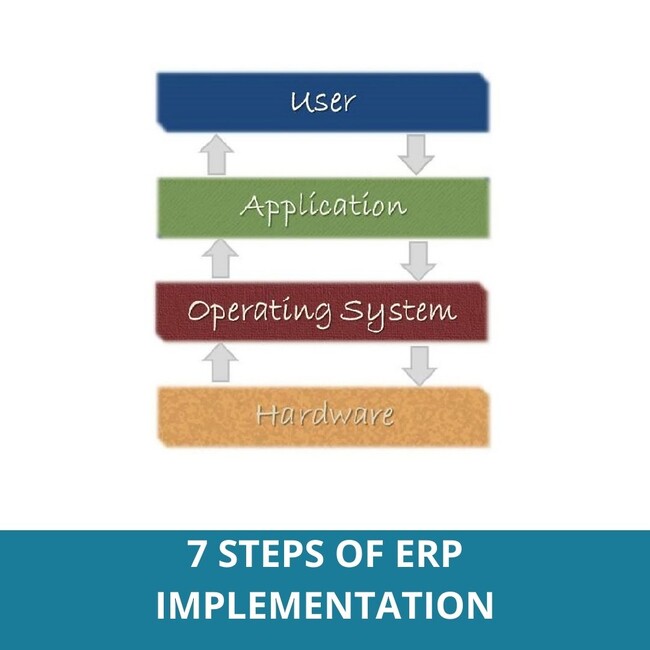7 Phases of Effective ERP Implementation

For any company looking to consolidate various aspects of their business into one seamless platform, there is nothing as effective as enterprise resource planning software or ERP software. While it can help organizations manage inventory, reports, logistics, finances and communications, the process of ERP implementation is also equally important for the success of the software. Irrespective of the complexity of the ERP system, the implementation process can be roughly categorized into 7 different parts.
7 steps to implement ERP software.
Defining The Scope
This is basically the mapping out stage of the project, where the desired end goals will be understood and clearly defined. Examples include the milestones the software is expected to achieve, the type of customizations required, and basic mapping of the process to reach the desired end result.
Analyzing Requirements
With the end goals in sight, the new system is now run as a simulation to be adjusted and configured so that it matches the desired requirements and is also in sync with the pre-defined workflow.
Data Migration
Sensitive data regarding the company will need to be mapped onto the new system from the old system. Once it has been migrated, it will need to be verified to ensure that there are no errors.
Testing
After successful data migration, the other aspects of the system will be continuously tested for unexpected errors or bugs.
Training Users
In the case of a big organization, a select few will be trained by the developers and given access to the software. These members will then in turn train other members of the company internally.
Software Deployment
Finally, the software is taken out of the sandbox stage and is pushed live in a production environment. This process will require stringent monitoring from the developers to ensure a smooth transition.
Support
Once the project has gone live, the maintenance and support team needs to be available to help deal with any unforeseen bugs or problems that might plague the system, as well as update the software when required.
Thus, by following this 7-step process, ERP software can be easily implemented to suit any business model.
An expert custom software development firm based out of Toronto, we at Vestra Inet believe in excellence and innovation. Our skilled developers can help craft the perfect ERP software that will catapult your business to the next level. To know more about our services and pricing, reach out to us today.
